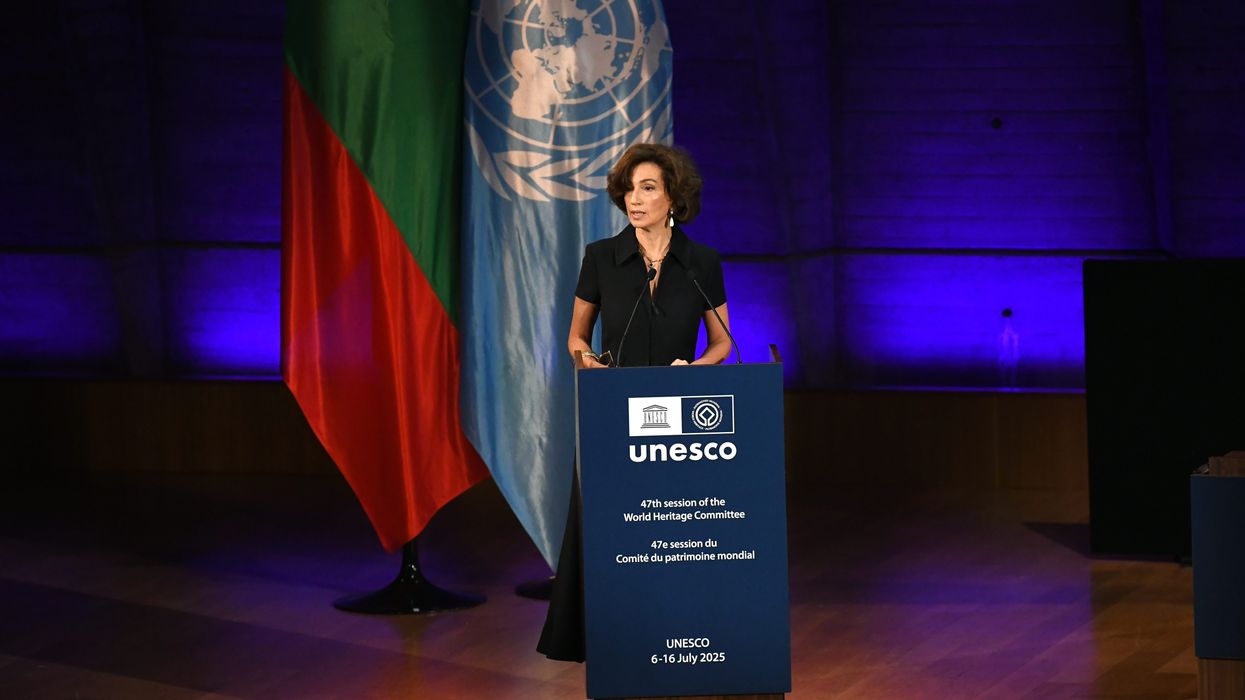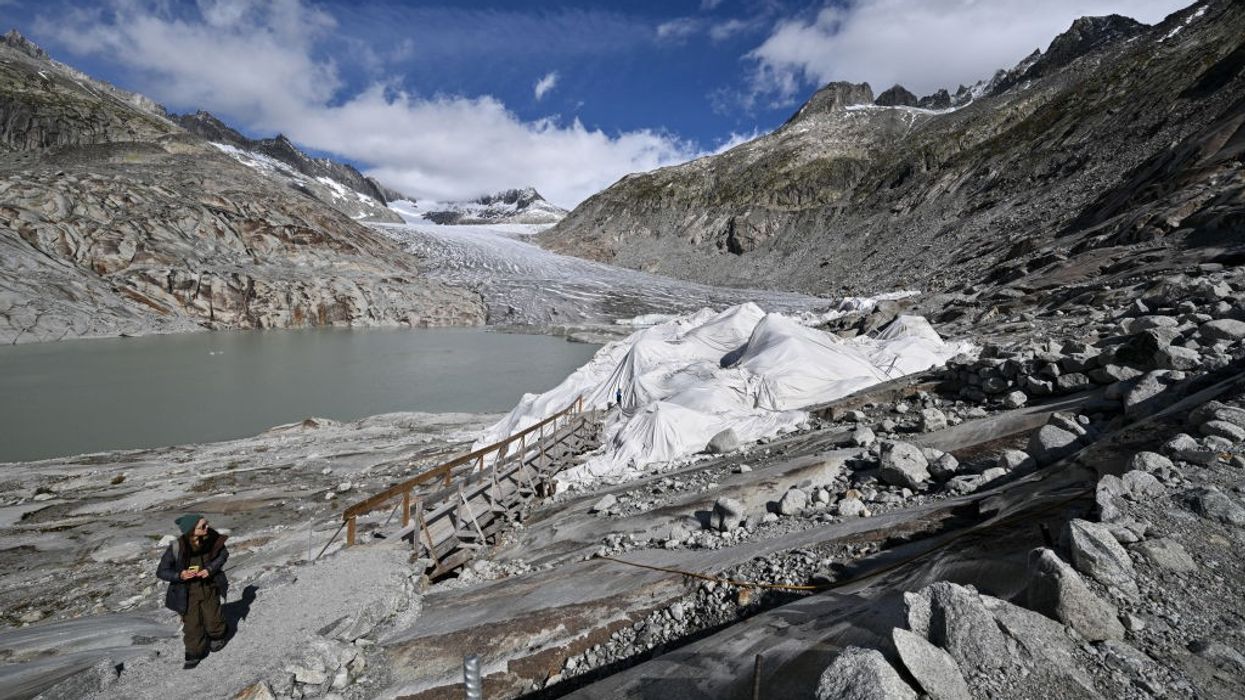Trump State Dept Announces Withdrawal From UNESCO Over Palestine Inclusion
Like: Palestinian officials responded by urging the U.S. not to "bind its own international standing to the crimes and violations committed by Israel."
The Trump administration's unrelenting backing of Israel was on display Tuesday as the U.S. State Department withdrew support for the United Nations agency tasked with promoting education and cultural understanding—but the organization's leader pledged that it would continue its work while welcoming "all the nations of the world."
State Department spokesperson Tammy Bruce cited the decision by the U.N. Educational, Scientific, and Cultural Organization (UNESCO) to accept the state of Palestine as a member state as part of the reason for the Trump administration's withdrawal.
The inclusion of Palestine is "contrary to U.S. policy, and contributed to the proliferation of anti-Israel rhetoric within the organization," Bruce claimed without citing examples.
Audrey Azoulay, director-general of the agency, said the U.S. withdrawal—which President Donald Trump also imposed during his first term, and which will eliminate about 8% of UNESCO's international funding—was "regrettable," but that the organization would continue operating without a reduction in staff, having prepared for the president's exit.
"In spite of President Donald Trump's first withdrawal in 2017, UNESCO stepped up its efforts to take action wherever its mission could contribute to peace and demonstrated the pivotal nature of its mandate," said Azoulay, noting that UNESCO adopted a "global standard-setting instrument on the ethics of artificial intelligence," developed major programs for education in conflict settings, took action to defend biodiversity, and oversaw the reconstruction of Mosul, Iraq—all without the participation of the United States.
Azoulay added that the reasons for the U.S. withdrawal, which will go into effect in December 2026, "contradict the reality of UNESCO's efforts, particularly in the field of Holocaust education and the fight against antisemitism."
"Palestine firmly rejects the justifications provided by the United States for its withdrawal, considering them an unacceptable politicization of UNESCO's work and a failed attempt to deflect attention from the violations committed by Israel."
The Trump administration, along with many establishment Democratic and Republican lawmakers, has explicitly equated expressions of support for Palestinians and criticism of Israel with antisemitism. UNESCO has denounced the Israeli government and military for their destruction of schools and cultural sites and their killing of journalists in Gaza.
Azoulay emphasized that UNESCO is "the only United Nations agency responsible" for promoting Holocaust education and for the global fight against antisemitism, "and its work has been unanimously acclaimed by major specialized organizations such as the United States Holocaust Memorial Museum in Washington D.C., the World Jewish Congress and its American Section, and the American Jewish Committee (AJC)."
"UNESCO will continue to carry out these missions," she said, "despite inevitably reduced resources."
The agency is also well known for designating World Heritage sites, more than 20 of which are in the United States.
U.S. Rep. Gregory Meeks (D-N.Y.), ranking member of the House Foreign Affairs Committee, called the withdrawal from UNESCO "another assault by the Trump administration on international cooperation and U.S. global leadership."
Along with promoting education about the Holocaust, Meeks said, UNESCO "directly benefits the U.S. economy through its Creative Cities and World Heritage programs, through which the United States has recently secured two new World Heritage inscriptions in Ohio and Pennsylvania—promoting to the world the beauty, culture, and heritage of American cities."
Before Trump withdrew from UNESCO for the first time in 2017, the Obama administration cut funding to the organization after it admitted Palestine as a member state in 2011.
The state of Palestine's Ministry of Foreign Affairs expressed "deep regret" over the Trump administration's decision on Tuesday.
"Palestine firmly rejects the justifications provided by the United States for its withdrawal, considering them an unacceptable politicization of UNESCO's work and a failed attempt to deflect attention from the violations committed by Israel, the illegal occupying power, against heritage, culture, and archaeological sites in Palestine, as well as in other areas such as education, science, media, and the environment," said officials.
The ministry also advised the U.S. not to "bind its own international standing to the crimes and violations committed by Israel."
"Otherwise," it said, "it would find itself compelled to withdraw from the entire multilateral international system, in order to shield Israel from accountability, thus encouraging it to continue perpetrating its crimes as a rogue state operating outside the framework of international legality."


